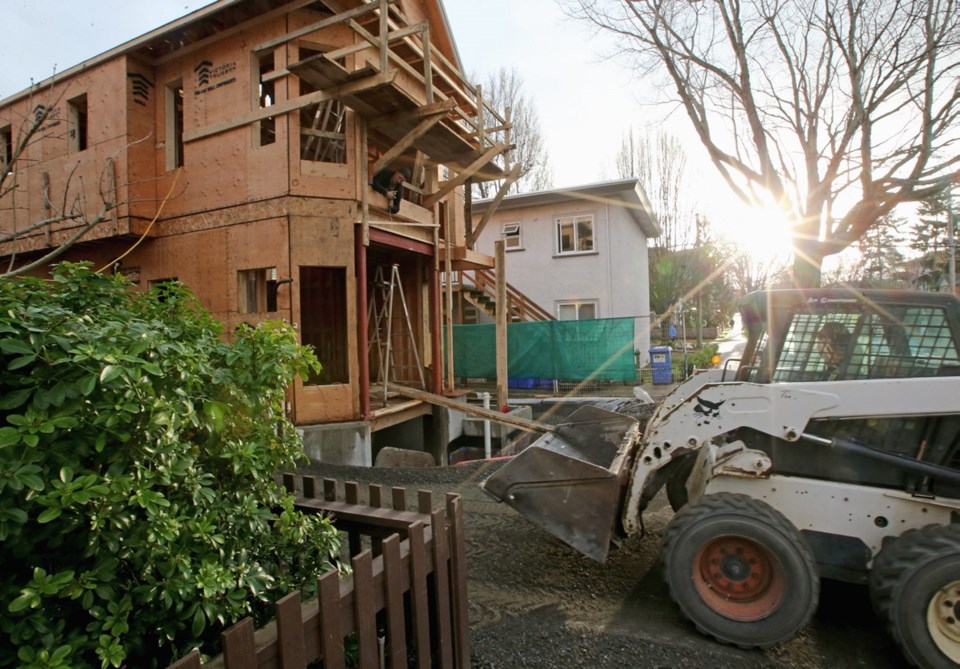B.C.’s housing market is in a “mild recession” but Vancouver Island’s real estate market is generally stable, a new report from Central 1 Credit Union says.
“I think the market in Victoria and the rest of the Island is still quite solid,” Bryan Yu, Central 1’s deputy chief economist, said Tuesday.
“There is definitely a little lower demand than there was in the market, but there’s also very little supply so the markets themselves are relatively balanced even in those areas.
“But prices have essentially flat-lined” on the Island, Yu said.
However, prices are expected to rise in Island communities that are attracting retirees, he said.
Prices in Greater Victoria remain lower than in Greater Vancouver, despite a downturn in its housing market. Homeowners in Vancouver can be tempted to sell and relocate to the capital region, where they can get more home for their buck.
Looking at the province as a whole, Yu points to lower sale prices, drops in housing sales and a decline in housing starts in B.C.
The report predicts that B.C.’s residential median sale price will drop by 1.9 per cent from this year to $520,000 in 2019.
“Subdued market conditions are expected to continue over the next three years, driven largely by the drag of federal … mortgage ‘stress tests,’ government policies to constrain demand and higher interest rates,” the report said.
Provincial policies introduced this year, including the foreign-buyer tax — which apply to Victoria and Nanaimo — and the new speculation tax on vacant housing also contribute to a dampening of the market, it said.
Demand will be driven by moderate economic growth, higher employment, wage increases and a rise in the population, the report said.
But the rapid price escalation is over, it forecast.
Housing starts in B.C. will slip by 18.5 per cent in 2019. The number of sales will be fairly steady compared with this year, inching up by 0.6 per cent. This year, B.C. sales numbers are expected to drop to 81,465, about 17.4 per cent lower than in 2017.
On the Island, the median residential resale price is set to increase next year to $465,000, up 2.2 per cent from 2018, the report predicted.
In the capital region, median resale prices (reflecting all types of homes) are expected to inch up by 0.3 per cent from this year to $588,000. Median resale prices in 2018 saw an overall increase of 6.1 per cent on the year.
Greater Victoria remains predominantly a single-family market. Houses are more commonly purchased in the capital region than on the Lower Mainland, where condominiums represent a greater number of sales, Yu said.
The popularity of single-family homes is reflected in the price. The benchmark price for a single-family house in the core of Greater Victoria was $865,000 in November, the Victoria Real Estate Board said. The core comprises Victoria, Oak Bay, Esquimalt, Saanich and View Royal.
Nanaimo is forecast to see prices move by 1.2 per cent next year to $430,000. Its number of resales is predicted to rise by 5.9 per cent.
The number of resales in Greater Victoria is predicted to increase next year by 3.3 per cent to 6,300, after dropping 16.9 per cent this year. Monthly sales numbers have slid 12 months in a row when compared with the same months in 2017 in the capital region.
For the Island, total sales are predicted to end this year down by 15.3 per cent from 2017. They are expected to rise by 2.9 per cent next year for a total of 15,750.



